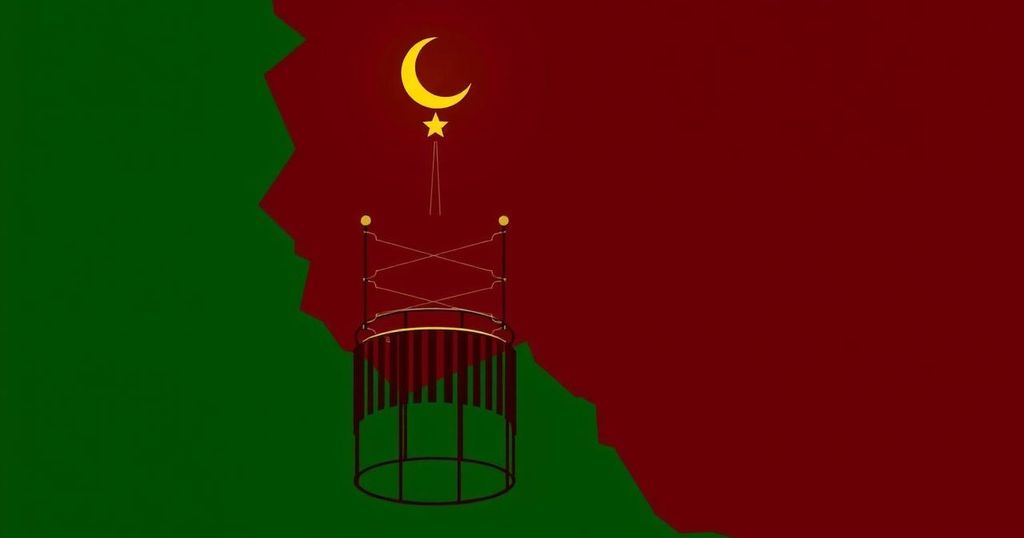Qatar Suspends Gaza Ceasefire Mediation Until Parties Show Willingness

Qatar has paused its mediation efforts for a Gaza ceasefire until Hamas and Israel exhibit a sincere willingness to negotiate. This reflects a significant setback, especially following unsuccessful talks and pressures from the U.S. regarding Hamas’ presence in Doha, which could have broader implications for the conflict.
Qatar has decided to suspend its efforts to mediate a ceasefire in Gaza until Hamas and Israel express a genuine commitment to engage in negotiations, according to a Reuters report on Saturday. This marks a significant setback in the ongoing conflict, during which Qatar, along with the United States and Egypt, has sought to facilitate discussions regarding a truce and the release of hostages held by Hamas. The failure of the latest negotiations in mid-October has prompted this pause, with Hamas previously rejecting proposals for a short-term ceasefire. In light of the current impasse, the Qatari government has come to the conclusion that Hamas’ political office in Doha “no longer serves its purpose.” Although Qatar has not established a deadline for the closure of this office or the departure of Hamas officials, it remains open to resuming mediation if both parties display a sincere willingness to negotiate towards ending the conflict. There has been no official comment from Hamas regarding this development, with sources indicating that any formal response may await direct communication from Qatar. Amid international pressures, including messages from Washington highlighting the unsustainability of Hamas’ presence in Doha post-rejection of ceasefire proposals, Qatar’s stance reflects its commitment to only mediate under conditions of mutual interest. The Gulf nation, designated as a key U.S. partner, has hosted Hamas leaders since 2012, positioning itself as an influential player in Middle Eastern diplomacy, despite recent challenges. The potential implications of this suspension could further complicate the dynamics of the conflict, especially following the assassination of key Hamas leaders. The ongoing negotiations are critical not only for the immediate cessation of hostilities but also for addressing humanitarian concerns in the region.
The article discusses the current limitations in Qatar’s role as a mediator in the ongoing Gaza conflict, particularly in light of the recent failures in negotiations between Hamas and Israel. Qatar’s involvement in mediation has been significant since the war’s escalation, reflecting its influential position within the Gulf region and its partnership with the United States. The decision to pause mediation efforts underscores the challenges that mediators encounter when faced with a lack of commitment from the conflicting parties to engage in constructive dialogue. As both sides have demonstrated an unwillingness to negotiate, Qatar’s suspending of its mediation efforts represents a pivotal moment in the search for peace.
In summary, Qatar’s decision to halt mediation efforts in the Gaza ceasefire reflects a critical assessment of the current dynamics between Hamas and Israel. This development signifies a setback in previous negotiations and emphasizes the necessity for both parties to exhibit a genuine willingness to engage in dialogue. The influence of international actors like the United States further complicates the situation. Until there are constructive engagements from both sides, Qatar’s role as a mediator remains in abeyance, resulting in increased uncertainty regarding the resolution of the ongoing conflict.
Original Source: gazette.com








